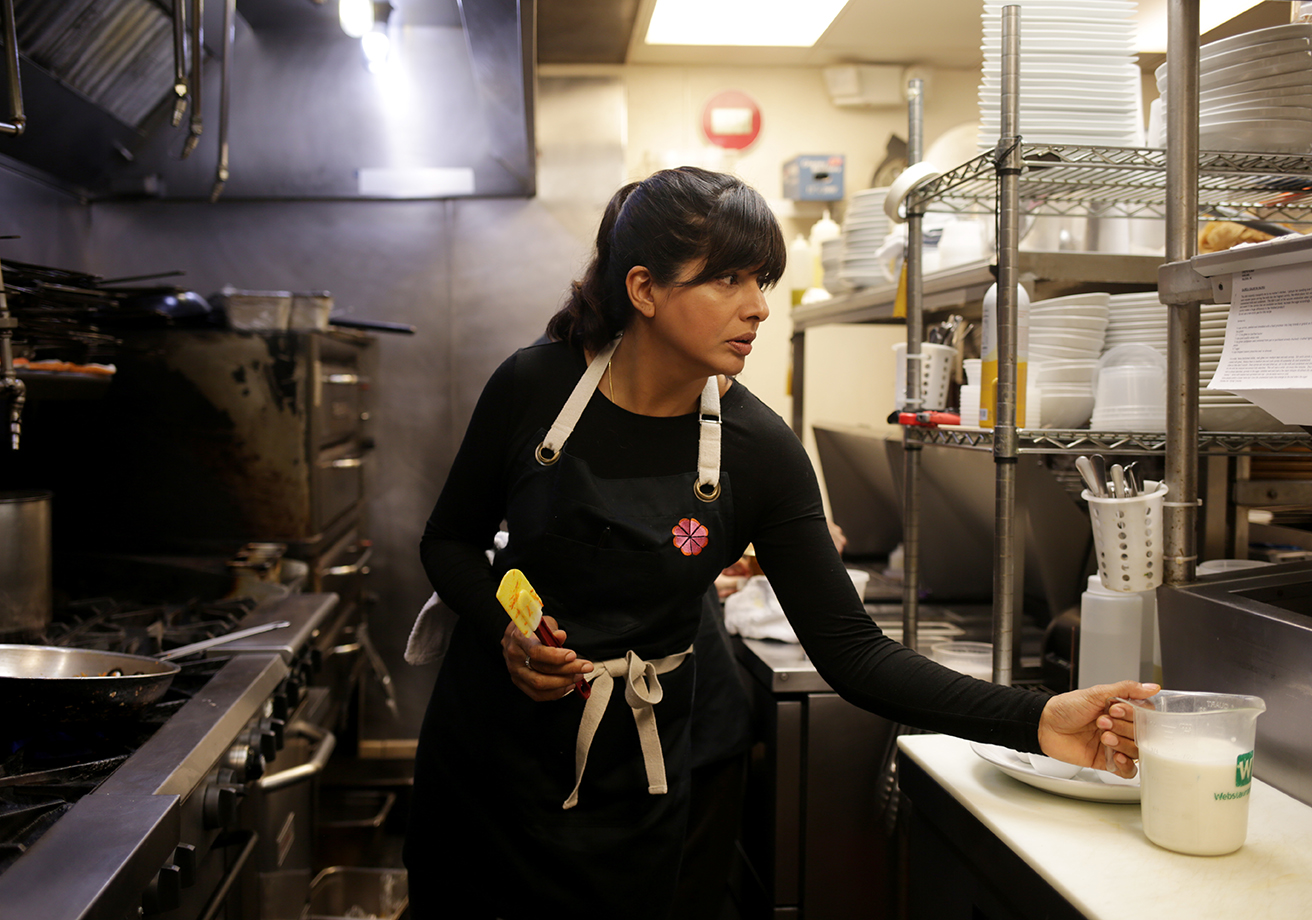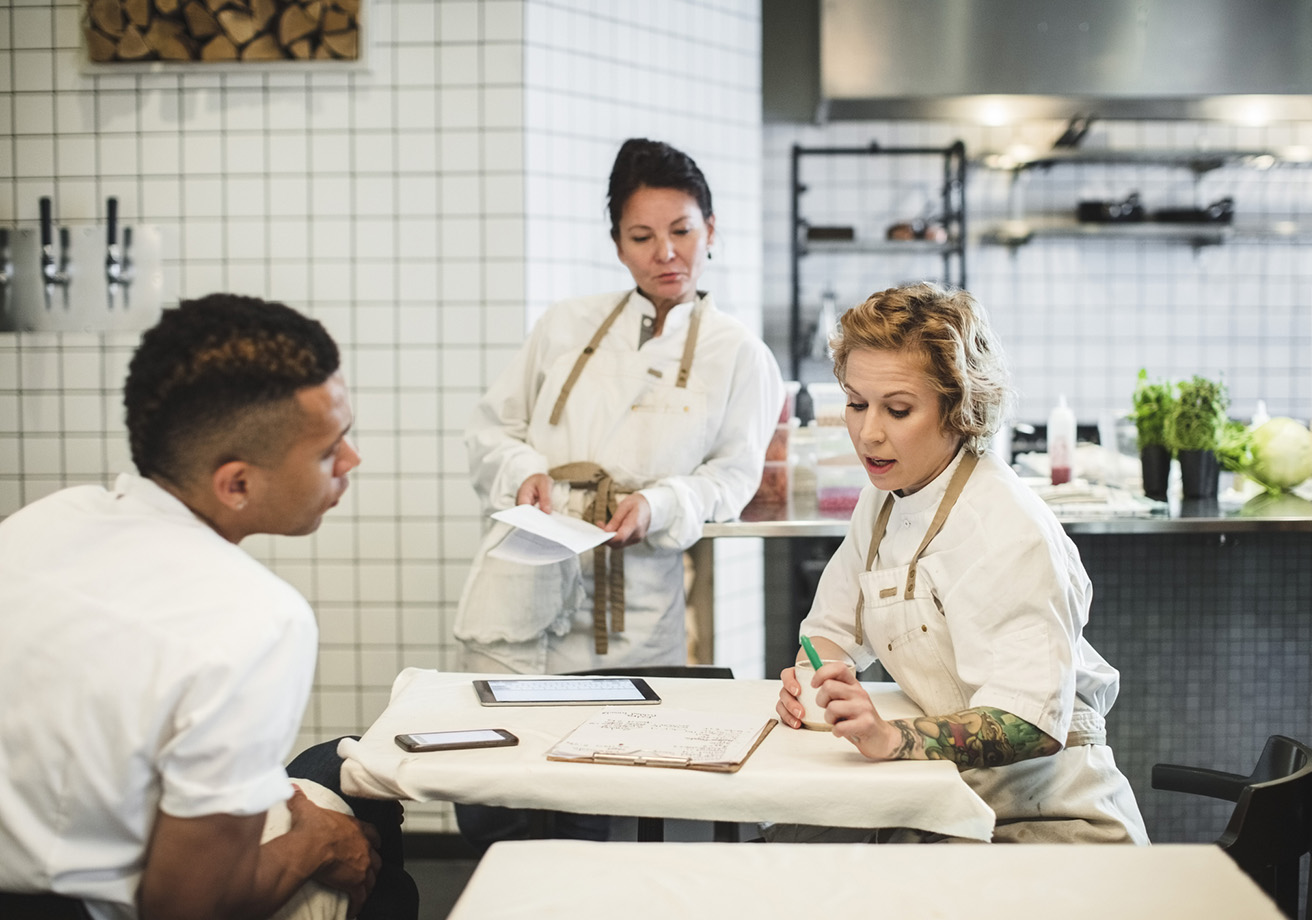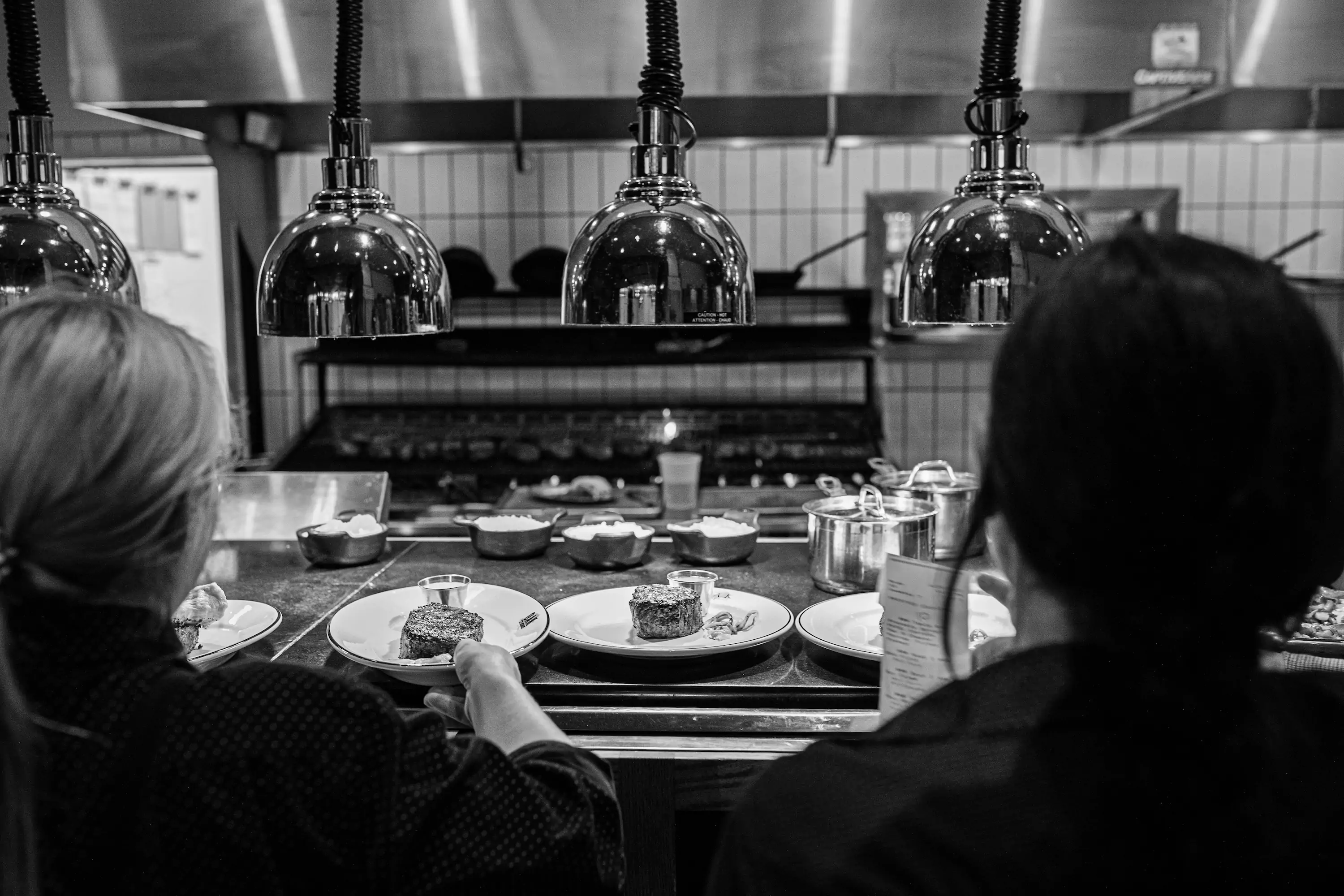More than six months into the coronavirus pandemic, restaurants as we once knew them are fundamentally changed. For insight into what’s to come, experts across the industry — chefs, restaurateurs, media, producers, sommeliers, and activists — shared what they predict. The stories in this series explore diversifying revenue streams; ensuring diversity, equity, and inclusion; building a deeper community connection; nurturing a healthier workforce; and joining together to survive. This is the future of restaurants.
The pandemic may have exposed the restaurant industry’s vulnerabilities, but those weak spots have long existed: harassment and misconduct, wage disparities, and a lack of benefits, to name a few.
For the chefs, operators, and organizers we heard from, the current moment poses an opportunity to reexamine and transform a broken model. How can restaurants pay their employees fairly and equally (and maybe even escape the discriminatory legacy of the tip system)? How can employees reap the benefits of long hours and hard work — through health care, paid time off, and retirement plans? How do restaurants stop relying on cheap labor that keeps prices artificially low?
These questions are top of mind for the experts below and for the industry as a whole. What’s clear is that restaurants of the future won’t accept exploitation and inequality as the norm — instead, they’re crafting conditions for a workforce that will be both sustainable and sustained. Below, experts weigh in on the need to transform the labor model, implement benefits, improve diversity in leadership, and otherwise professionalize the industry.

“[My ultimate vision for the industry in five or ten years is] that it’s treated as a respected profession. You get health care, paid time off, you’re not working 16-hour days. People are paying for food actually what it’s worth, because it’s more than just the ingredients — it’s all the people behind it that get your plate hot, safe, fresh, ready to go. That goes with eliminating tipping as well, which is an act rooted in slavery. No other industry operates that way. It shouldn’t fall on the consumer to pay for somebody’s work; it should be operators. We need to be able to raise our prices in order to do that.” — Kwame Onwuachi, chef and author of Notes from a Young Black Chef
“The tip credit is really problematic. It contributes to a lot of the problems we face in our industry – talent is not really viewed in the same way across the board. It fosters a feeling of vulnerability when you depend on a random guest to basically pay your way in this world. As a woman, you often put up with boundaries being broken that you really shouldn’t ever have to put up with in a workplace. Tipping has a lot of racially charged roots; servers not being paid a proper minimum wage has its origins in slavery. Servers have the duality of not having any job security and also making more money than the back of house – they’re overpaid and undervalued at the same time. It really does something to the culture of service. How we can change it is a huge undertaking.” – Cheetie Kumar, musician and chef/owner of Garland, Kings, and Neptune’s Parlour
“The business model of restaurants relies on cheap labor, usually performed by immigrants, undocumented workers, and other vulnerable members of the population. That model can’t be the norm. It needs to fundamentally change.” — Priya Krishna, food writer and author of the cookbook Indian-ish
Reservations for Garland:

“I hope we see an industry that fully embraces its responsibility to lift everyone up that makes food possible. Where everyone has meaningful and robust access to health care that isn’t dependent on an employment contract, but part of the social contract with living in the United States. Where US labor guidelines are not multi-tiered, with separate overtime rules for farmhands and agricultural workers, who typically work six days [a week] and 10 hours a day before overtime is afforded them. Where structural racism is dismantled in USDA and other federal programs so that we increase land ownership by Black farmers up from the less than 1 percent of what it is now. Where essential farm workers are not deemed illegal and where we have built in pathways for naturalization and citizenship.” – Vinny Eng, community organizer, SF New Deal
“The system itself, and how it’s set up, is very difficult. You’re at the age of 35, going on 40, before you’re able to own your own restaurant. That’s our retirement plan, owning our own place. But instead of working less, you’re actually working harder. There are some things I’d like to see change — making health care more affordable for the restaurant industry and owners, getting better tax breaks. Being able to make it affordable so restaurant owners can afford 401(k)s. Those are things I think will revolutionize and change what the industry looks like, and give people who work in the industry more stability. Somms, chefs, all these professional people — they’re not treated or given the same opportunities as every other professional.” — Tavel Bristol-Joseph, restaurateur and executive pastry chef at Emmer & Rye, Hestia, Kalimotxo, Henbit, and TLV
Reservations for Emmer & Rye:
Reservations for Hestia:




